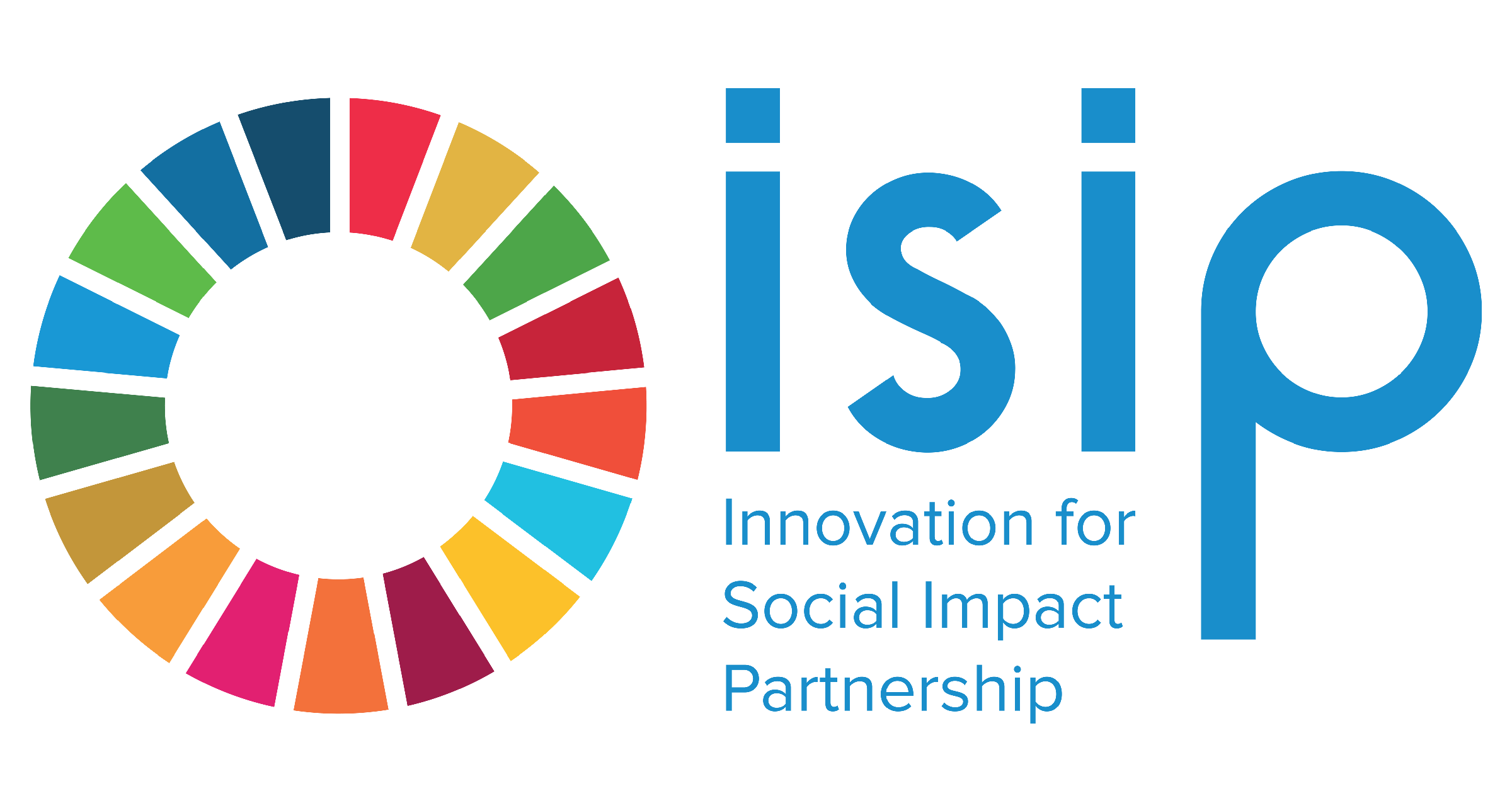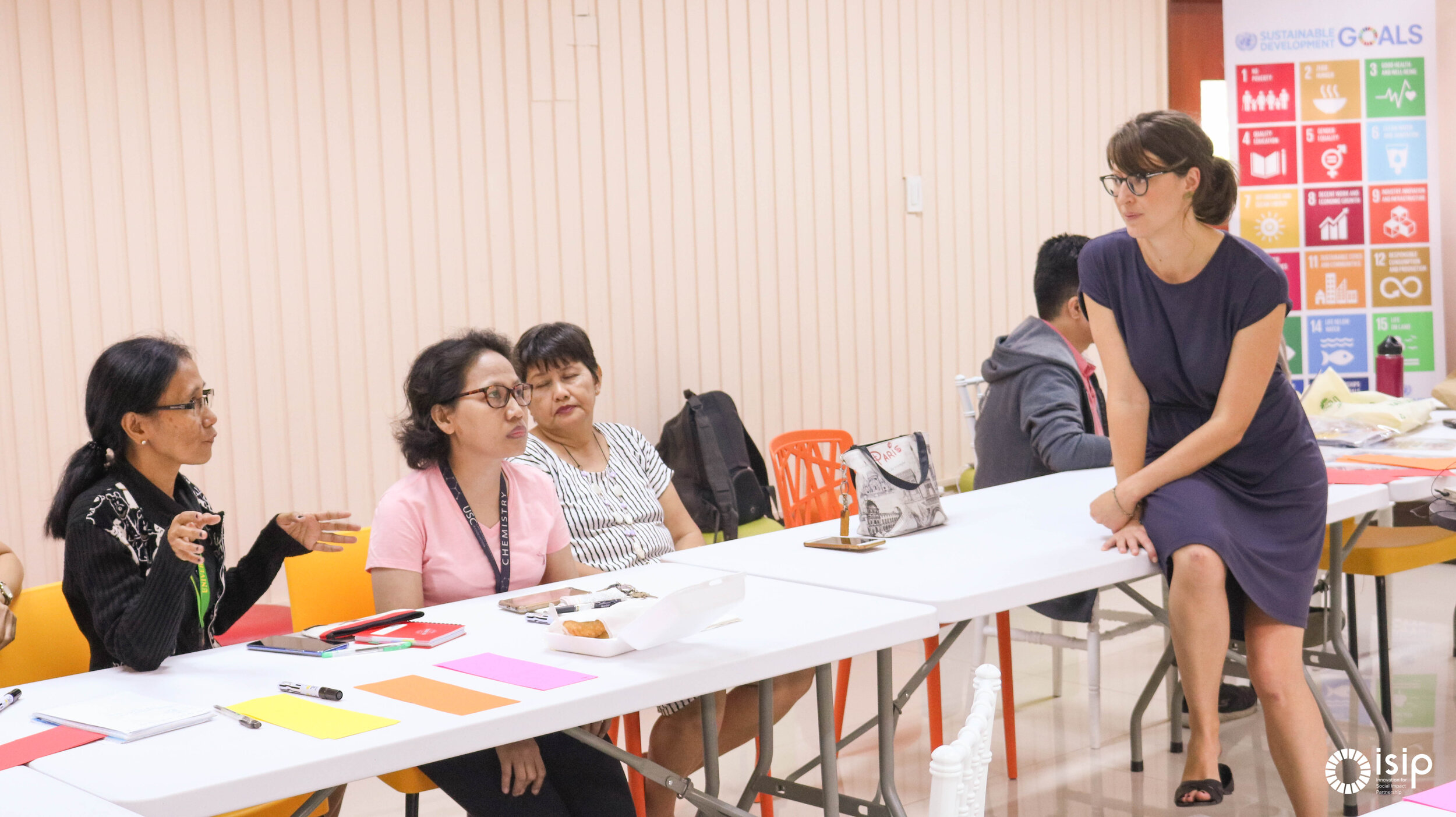A Visiting Professor’s Journal: Meike Siegner
As we open our doors to the next batch of ISIP Visiting Professors, learn more about the unique experience of being a Visiting Professor in the Philippines, as told by Meike Siegner of the University of British Columbia in Vancouver, Canada.
Meike teaches from the University of British Columbia. She was previously a teaching assistant at The University of British Columbia where she taught Sustainable Forestry and a former researcher for the Vienna University of Economics and Business (WU) Competence Centre for Nonprofits & Social Entrepreneurship. She came to the Philippines in August 2019 for a five-day deployment as Visiting Professor under the Innovation for Social Impact Partnership (ISIP) project.
--
I visited the Philippines in August 2019 through the Innovation for Social Impact Partnership (ISIP) Project to share some of my experiences in Social Entrepreneurship Research and Education, as well as Social Enterprise Mentorship and Start-up Incubator Operations.
When I skimmed the profiles of the universities that participate in the visiting professor component of the ISIP program, the University of San Carlos (USC), with its already well-defined education offerings in the Technopreneurship field and the newly founded Social Entrepreneurship Centre, quickly caught my attention. Due to the strong foundations the university had already built in both those fields, I was quickly convinced that it would be a great place to bring in my background and expertise in the field of environmental social enterprise, management of tensions in social ventures, and applicability of circular economy concepts in social start-ups. I was thus very pleased when I learned that USC had a similar impression of the match between my scholarly profile and their needs in terms of developing social entrepreneurship and Technopreneurship in the School of Engineering.
“ Due to the strong foundations the university had already built in both those fields, I was quickly convinced that it would be a great place to bring in my background and expertise in the field of environmental social enterprise, management of tensions in social ventures, and applicability of circular economy concepts in social start-ups. ”
Besides my interest in expanding research collaborations in social enterprise and gaining insight in start-up and innovation ecosystems in different contexts, I was particularly intrigued by the idea to visit a country in Southeast Asia, a geographic area I had not visited before (my research and work context were mainly in Europe, as well as North and South America). Being a visiting professor with ISIP thus allowed me to delve into the historic culture and entrepreneurship environment in a part of the world I was unfamiliar with, which immensely broadened my horizon.
From the first day of my arrival, I was taken by the open and friendly Filipino culture, the delicious food and ancient historic sites, and foremost, the impressive ingenuity and inventiveness with which Filipino professionals, innovators and educators cultivate an entrepreneurial culture geared towards providing solutions to pressing social and environmental issues facing the region. It is the ability of those individuals to view those issues as opportunities for creativity and ingenuity, rather than collective liabilities, that impressed me throughout the week and which I observed day after day as I met with Faculty members at USC, as well as my encounters with students and founding teams of innovative social start-ups. I was immediately convinced that the social entrepreneurship ecosystem in the Philippines is up and thriving!
“It is the ability of those individuals to view those issues as opportunities for creativity and ingenuity, rather than collective liabilities, that impressed me ”
Once at USC, I quickly realized the breadth of activities in the realm of campus-wide sustainability and circular economy that are already in existence, which was a wonderful opportunity to link my research talks and concepts on social enterprise with ongoing practical applications at the university. This provided a productive space for discussions and use of locally relevant cases during the activities I conducted. A great example are the various on-campus recycling activities, as well as existing closed-loop systems for recyclable materials and waste products across university technical labs that provided the basis for my workshop on campus sustainability. Furthermore, the fact that the School of Engineering is a leader in innovation (patenting) and entrepreneurship around circular economy solutions for mango waste, provided a solid case to connect my teaching on tensions in social enterprise (mission-drift) with existing businesses such as Green Environ Management System Inc. (GEMS), one of the flagship initiatives of Engineering Dean Evelyn Taboada and her team.
The other inspiring part of my deployment were the encounters with local start-ups and student entrepreneurs at the USC School of Engineering, as well as the Australia Alumni Award Program, some of which operate their start-ups in Cebu and Manila area. I was impressed by the breadth of innovative business models emerging from these activities in various fields, ranging from public health, to local food, sustainable clothing, transportation, as well as recycling and use of sustainable materials of sorts. My main takeaways from my activities with the startups are that their founders are very aware of the opportunity spaces created by pressing societal challenges in their country. They are eagerly looking toward domestic and international markets in scaling their business models and are savvy in cultivating the networks necessary for those endeavors. I particularly enjoyed holding a workshop on ‘digital storytelling for social enterprises’ which not only allowed me to learn more about the personal story of Filipino start-up founders and their motivations, it also provided a collective learning process among participants in terms of best-practice marketing strategies to appeal to a range of customer groups in various sectors and contexts.
Overall, the deployment created a wonderful opportunity space for further research collaboration, mentoring activities and a bundle of experiences that will inform my knowledge sharing back in the classroom in North America, and during academic gatherings of sorts. The main takeaway, however, particularly in light of the SDGs that inform the ISIP initiative, is that sustainable development is fundamentally driven by the human connection. It is the inspiring informal conversations, the numerous encounters with change-seeking individuals that are so driven to create better, more cohesive and environmentally sustainable societies, that are ingrained in the ISIP visiting professors activities and that make this program such a wonderful opportunity for knowledge sharing and collaboration. Whether through discussion groups, informal gatherings, individual mentoring sessions, or spontaneous visits to local businesses and cultural sites. Those encounters create a solid base for trust to emerge and lasting collaborations in research and entrepreneurship practice to be formed. I can’t wait to take this next step with USC School of Engineering in realizing our joint collaboration in the realm of writing social enterprise case studies and digital storytelling mentoring for startups, along with future collective grant opportunities for social business in the circular economy.
Meike Siegner
PhD Candidate, Sustainable Business Management
The University of British Columbia
Vancouver, Sep 09, 2019
--
Experience a one of a kind cultural and knowledge exchange with the Visiting Professors activity. Be part of this rare opportunity of building global connections with social enterprises and Universities in the Philippines and helping shape the local entrepreneurship landscape! Immerse, share, and grow.
Apply now as a Visiting Professor to the Philippines: https://www.isip-ph.com/visting-professors
Visiting Professors is one of the activities of the Innovation for Social Impact Partnership (ISIP), a project co-implemented by UNDP in the Philippines and PhilDev, with generous support from Australia in The Philippines.




